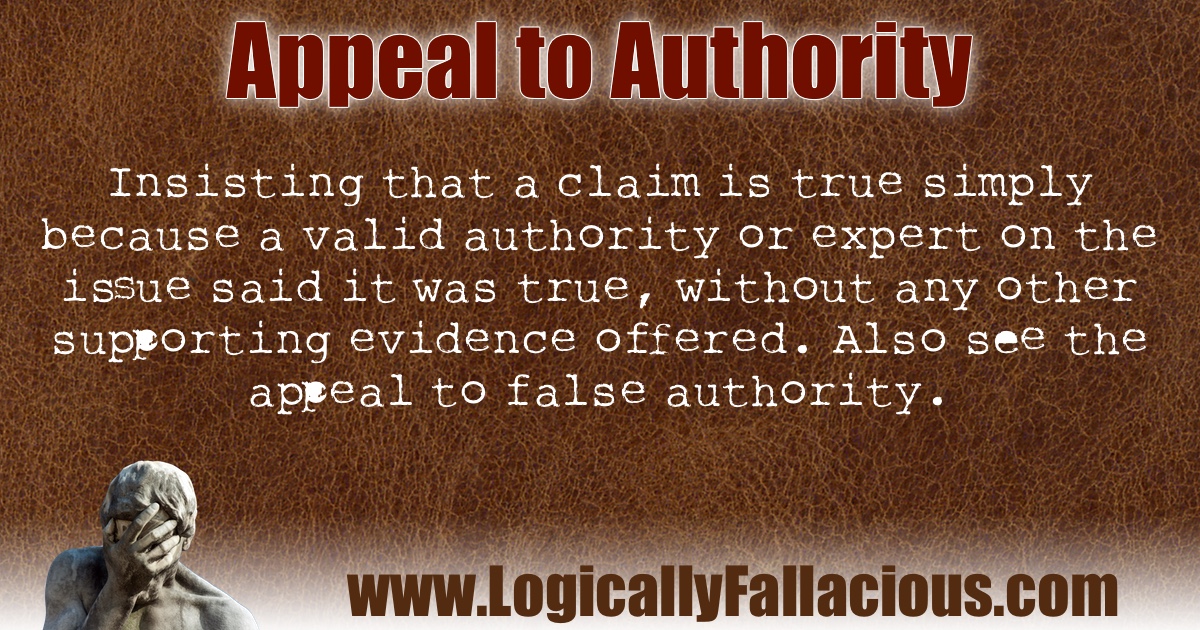argumentum ad verecundiam
(also known as: argument from authority, ipse dixit)
Description: Insisting that a claim is true simply because a valid authority or expert on the issue said it was true, without any other supporting evidence offered. Also see the appeal to false authority .
Logical Form:
According to person 1, who is an expert on the issue of Y, Y is true.
Therefore, Y is true.
Example #1:
Richard Dawkins, an evolutionary biologist and perhaps the foremost expert in the field, says that evolution is true. Therefore, it's true.
Explanation: Richard Dawkins certainly knows about evolution, and he can confidently tell us that it is true, but that doesn't make it true. What makes it true is the preponderance of evidence for the theory.
Example #2:
How do I know the adult film industry is the third largest industry in the United States? Derek Shlongmiester, the adult film star of over 50 years, said it was. That's how I know.
Explanation: Shlongmiester may be an industry expert, as well as have a huge talent, but a claim such as the one made would require supporting evidence. For the record, the adult film industry may be large, but on a scale from 0 to 12 inches, it's only about a fraction of an inch.
Exception: Be very careful not to confuse "deferring to an authority on the issue" with the appeal to authority fallacy. Remember, a fallacy is an error in reasoning. Dismissing the council of legitimate experts and authorities turns good skepticism into denialism. The appeal to authority is a fallacy in argumentation, but deferring to an authority is a reliable heuristic that we all use virtually every day on issues of relatively little importance. There is always a chance that any authority can be wrong, that’s why the critical thinker accepts facts provisionally. It is not at all unreasonable (or an error in reasoning) to accept information as provisionally true by credible authorities. Of course, the reasonableness is moderated by the claim being made (i.e., how extraordinary, how important) and the authority (how credible, how relevant to the claim).
The appeal to authority is more about claims that require evidence than about facts. For example, if your tour guide told you that Vatican City was founded February 11, 1929, and you accept that information as true, you are not committing a fallacy (because it is not in the context of argumentation) nor are you being unreasonable.
Tip: Question authority -- or become the authority that people look to for answers.

References:
Hume, D. (2004). An Enquiry Concerning Human Understanding. Courier Corporation.